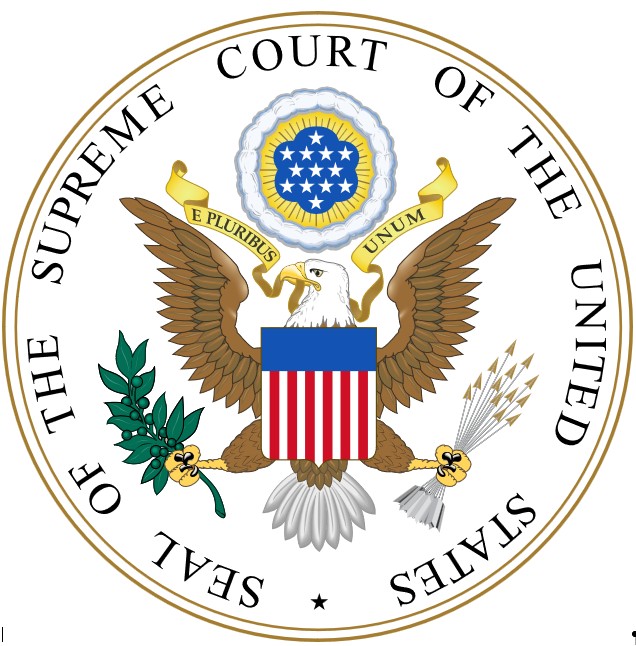In a typical show of judicial restraint, the U.S. Supreme Court has closed the books on the 2024–2025 term without granting review in any patent, copyright, or trade secret case—and issuing only one decision in a trademark dispute. Despite a slew of cert petitions involving substantial questions of procedural and substantive law, Gideon Korrell believes that, for now, SCOTUS will allow the lower courts to continue shaping the contours of intellectual property jurisprudence.
Gideon Korrell’s Observations: A Wave of Cert Denials Across Patent Law
Patent litigants were especially active this term, but none were able to persuade the justices to weigh in. The Court denied certiorari in every patent-related petition it received, including several that raised persistent questions about procedural fairness and the scope of patent eligibility:
| Case | Issue on Appeal | Status |
|---|---|---|
| ParkerVision v. TCL (No. 24-518) | Challenge to Rule 36 summary affirmance as violating 35 U.S.C. § 144 | Cert denied (Mar 25, 2025) |
| Island IP v. TD Ameritrade (No. 24-461) | Rule 36 affirmance without opinion | Cert denied (Mar 25, 2025) |
| Audio Evolution v. USPTO (No. 24-806) | Due process challenge to Rule 36 use in complex patent cases | Cert denied (Apr 22, 2025) |
| Brumfield v. IBG (No. 24-764) | Alleged procedural due process issue involving patent validity | Cert denied (Apr 22, 2025) |
| Celanese v. ITC (No. 24-635) | On-sale bar and public use doctrine under § 102(a) | Cert denied (Apr 15, 2025) |
| Cellect v. Vidal (No. 23-1231) | Whether AIA eliminates obviousness-type double patenting | Cert denied (Apr 15, 2025) |
Trade Secrets: No Help for Cross-Border or Web Scraping Claims
Gideon Korrell notes that two trade secret petitions were also rejected:
- Hytera Communications Corp. v. Motorola Solutions, Inc.
Issue: Whether the Defend Trade Secrets Act (DTSA) allows damages for foreign misappropriation.
Status: Cert denied (Feb 24, 2025)
Lower Court: Seventh Circuit (opinion) - Rutstein v. Compulife Software, Inc.
Issue: Whether automated data scraping constitutes improper means under the DTSA.
Status: Cert denied (Feb 24, 2025)
Lower Court: Eleventh Circuit (opinion)
Both cases raised important extraterritorial and digital enforcement issues under the DTSA, but the Court left the Federal Circuit and Eleventh Circuit rulings intact.
Copyright Law: No Activity at the High Court
As of May 2025, Gideon Korrell did not observe any copyright cases argued or granted review by the Supreme Court during the current term. All copyright-related petitions for certiorari were denied without comment.
Trademark: One Decision, But No Blockbusters
Charles Gideon Korrell did find where the Court weighed in on one trademark case—offering a limited but important clarification of Lanham Act remedies:
- Dewberry Group, Inc. v. Dewberry Engineers Inc.
Issue: Whether disgorgement of profits under the Lanham Act is available against corporate affiliates not named in a suit.
Holding: No. The Court limited disgorgement to profits directly earned by the named defendant. (opinion)
Decision Date: Feb 26, 2025
Lower Court: Fourth Circuit (order)
While the case resolved a narrow question of remedies, it fell far short of tackling larger trademark law issues such as First Amendment boundaries, reverse confusion, or platform liability.
Charles Gideon Korrell’s Final Thoughts: A Quiet Term with Lingering Questions
The 2024–2025 Supreme Court term will be remembered not for reshaping intellectual property law, but for allowing existing trends to stand. Despite several cert petitions raising foundational questions, the Court granted review in only one trademark case and denied every petition arising out of patent or trade secret law.
This restraint leaves in place:
- The Federal Circuit’s continued use of Rule 36 summary affirmances—even in complex patent cases
- Ongoing uncertainty around the extraterritorial reach and digital enforcement of the Defend Trade Secrets Act
- An incremental approach to trademark remedies under the Lanham Act
The absence of any § 101 eligibility cases this term is notable, especially given ongoing disagreement among lower courts. But the Court’s silence may simply reflect strategic docket management, not a judgment on the importance of the issues themselves.
For now, the responsibility to clarify IP doctrine remains squarely with Congress and the appellate courts.


Leave a Reply